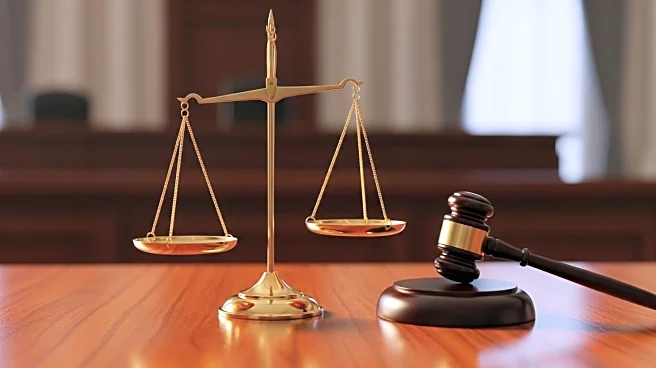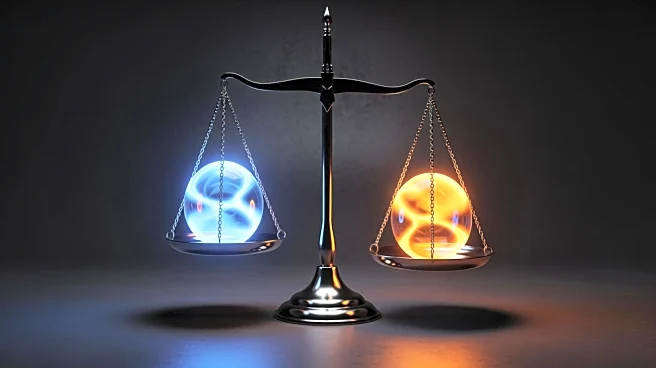What's Happening?
The Supreme Court is reportedly moving towards endorsing the unitary executive theory, a constitutional theory that could significantly expand presidential power. This theory suggests that the president should have complete control over the executive branch, including the ability to issue orders and fire subordinates at will. President Trump has been a proponent of this theory, as evidenced by his actions to remove government workers and attempt to shut down agencies like the Department of Education. The theory has been contentious, with its roots traced back to conservative legal theorists in the 1980s. Recent Supreme Court decisions have shown a trend towards supporting this theory, potentially overturning long-standing precedents that limit presidential power.
Why It's Important?
The potential endorsement of the unitary executive theory by the Supreme Court could lead to a significant shift in the balance of power within the U.S. government. If the president gains more control over the executive branch, it could diminish the independence of federal agencies and alter the way the government operates. This shift could impact regulatory roles, administrative governance, and the enforcement of laws, potentially leading to a more centralized form of governance. Critics argue that this could undermine democratic principles by concentrating too much power in the hands of the president, while supporters believe it could streamline government operations and reduce bureaucratic inefficiencies.
What's Next?
The Supreme Court's future decisions will be crucial in determining the extent to which the unitary executive theory is adopted. If the court continues to rule in favor of expanding presidential power, it could lead to significant changes in how federal agencies operate and how laws are enforced. Political leaders, legal scholars, and civil society groups are likely to engage in debates over the implications of such a shift, with potential legislative and judicial challenges to follow. The outcome could redefine the role of the presidency and the structure of the U.S. government.
Beyond the Headlines
The adoption of the unitary executive theory could have long-term implications for the U.S. political system. It raises ethical and legal questions about the concentration of power and the potential erosion of checks and balances. The theory's implementation could also influence the U.S.'s global standing, as it may affect foreign policy decisions and international relations. Additionally, the shift could trigger cultural and societal debates about the nature of democracy and governance in the modern era.










